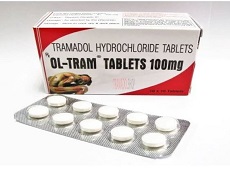A tooth crown is a common dental solution used to restore the strength, shape, and appearance of a damaged tooth. While the treatment itself is straightforward, proper care afterward is crucial for maintaining the crown’s longevity and avoiding complications. In this article, we’ll explore practical steps to care for a tooth crown, common mistakes to avoid, and how maintaining oral hygiene can save you from higher dental implant costs in the future. Edge Dental emphasizes that understanding post-treatment care can make a significant difference in the lifespan of your dental restorations.
What Should You Expect Immediately After Receiving a Tooth Crown?
After your dentist places a tooth crown, you might experience some sensitivity or discomfort. This is normal and usually resolves within a few days. Your dentist at Edge Dental may recommend:
- Avoiding hard or sticky foods: Chewy candies, nuts, and ice can loosen or damage a new crown.
- Using mild pain relievers: Over-the-counter medications can help manage temporary discomfort.
- Being cautious with hot or cold foods: Your tooth may be sensitive until the surrounding tissues fully heal.
Following these initial guidelines helps ensure that your crown settles properly and reduces the risk of damage or infection.
How Should You Brush and Floss Around a Tooth Crown?
Oral hygiene is key to prolonging the life of a tooth crown. Brushing and flossing around the crown protects the surrounding gums and prevents decay at the margin where the crown meets your natural tooth.
- Brushing: Use a soft-bristled toothbrush and fluoride toothpaste. Brush gently in circular motions to avoid damaging the crown or irritating the gums.
- Flossing: Slide the floss carefully between your teeth and under the crown. Avoid snapping the floss, as this can dislodge the crown. Edge Dental recommends flossing at least once daily to prevent plaque buildup.
By maintaining excellent oral hygiene, you minimize the risk of cavities or gum disease that could compromise your crown and potentially increase dental implant costs in the future.
What Foods Should You Avoid to Protect Your Tooth Crown?
Certain foods can damage a tooth crown or reduce its lifespan. Avoiding these items helps maintain the crown’s integrity:
- Sticky foods: Caramel, chewing gum, and taffy can pull at the crown.
- Hard foods: Ice, hard candies, and nuts can crack or loosen the crown.
- Excessively chewy meats: Tough meats require heavy chewing that can strain the crown.
Instead, opt for softer foods immediately after treatment and gradually return to your normal diet as recommended by your dentist.
How Can You Manage Sensitivity Around a New Crown?
It’s common to experience sensitivity after a tooth crown procedure. Edge Dental suggests the following strategies to reduce discomfort:
- Use toothpaste for sensitive teeth: These contain compounds that block pain signals.
- Avoid extremely hot or cold beverages: Sudden temperature changes can trigger sensitivity.
- Rinse with warm salt water: This can reduce inflammation and support healing.
If sensitivity persists for more than a few weeks, contact your dentist to check for issues such as crown misalignment or underlying tooth decay, which can increase the dental implant cost if not addressed early.
What Are the Signs That a Tooth Crown Needs Professional Attention?
Even with proper care, crowns may occasionally encounter issues. Seek professional evaluation if you notice:
- Persistent pain or discomfort
- Loose or wobbly crown
- Chipping, cracking, or visible damage
- Gum swelling or redness around the crown
Early intervention by Edge Dental can prevent more serious problems and avoid unnecessary expenses, including the potential for a full dental implant cost replacement.
How Often Should You Visit Your Dentist After a Crown?
Routine dental checkups are essential for the longevity of a tooth crown. Your dentist will:
- Inspect the crown for signs of wear or damage.
- Check the surrounding gums for inflammation or decay.
- Perform professional cleaning to remove plaque and tartar buildup.
Most patients benefit from checkups every six months, though your dentist may adjust this schedule based on your oral health needs.
Can Habits Like Grinding or Clenching Affect Your Crown?
Yes, habits such as teeth grinding (bruxism) or clenching can wear down or crack a tooth crown. Edge Dental recommends:
- Using a custom nightguard to protect teeth while sleeping.
- Avoiding chewing on pens, ice, or fingernails.
- Being mindful of excessive pressure when biting.
Addressing these habits early helps protect your crown and avoids additional procedures that may increase dental implant costs.
How Does Proper Care Impact Long-Term Dental Costs?
Caring for a tooth crown not only ensures its durability but also reduces the likelihood of expensive dental procedures later. Neglecting a crown can lead to decay, gum disease, or crown failure—situations that may require a dental implant. Proper oral hygiene, routine checkups, and mindful eating habits are small steps that provide significant long-term savings and preserve your natural teeth.
Conclusion: Why Following Post-Treatment Instructions Matters
A tooth crown can last many years with proper care. By maintaining oral hygiene, avoiding damaging foods, monitoring for symptoms, and visiting your dentist regularly, you protect both your dental investment and your overall oral health. Edge Dental emphasizes that attention to detail after treatment is just as important as the procedure itself. Preventive care can significantly reduce future dental implant costs and ensure a healthy, confident smile.






